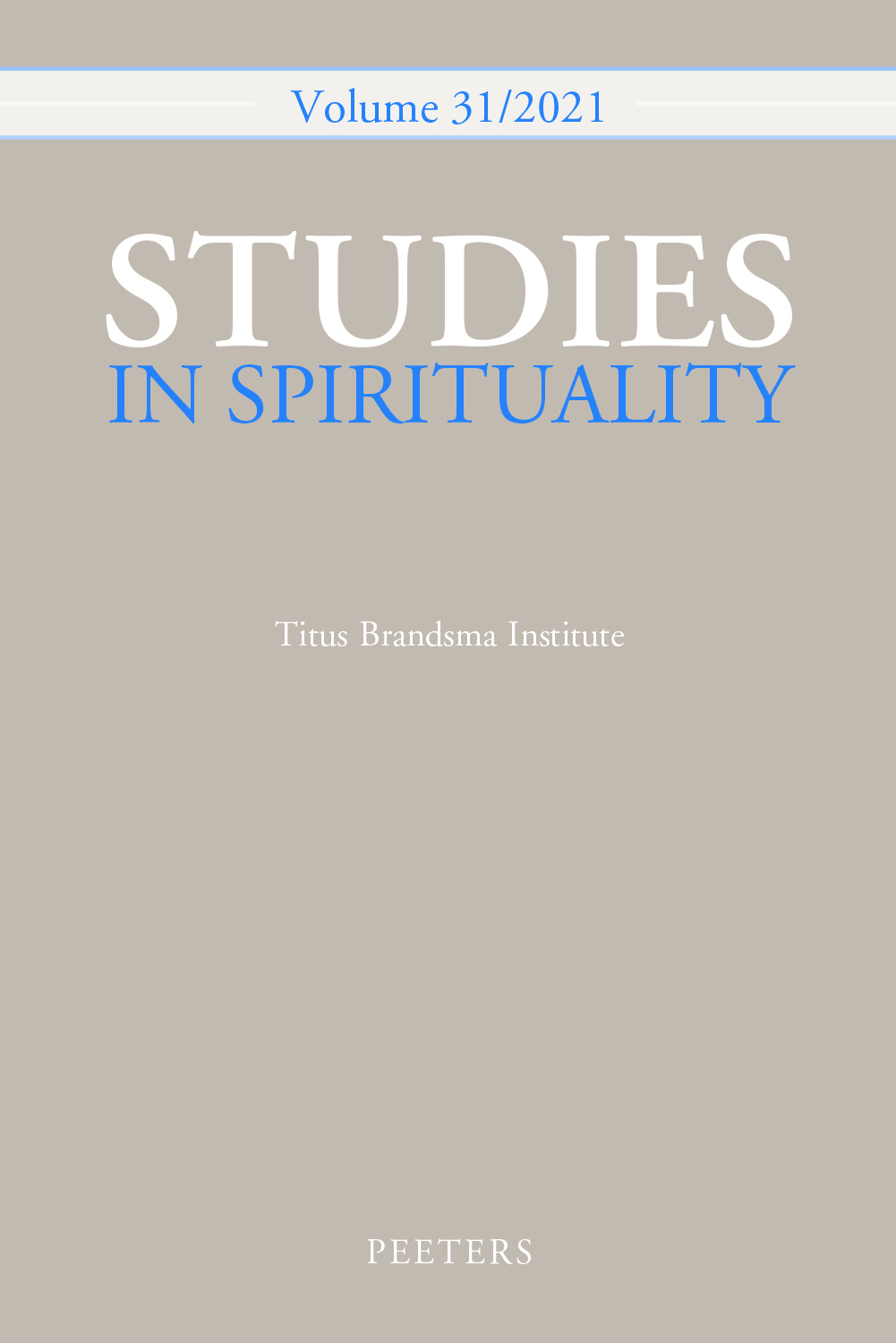 previous article in this issue previous article in this issue | next article in this issue  |

Preview first page |
Document Details : Title: Spirituality of the Incarnation Author(s): SPEELMAN, Willem Marie Journal: Studies in Spirituality Volume: 27 Date: 2017 Pages: 143-162 DOI: 10.2143/SIS.27.0.3254100 Abstract : A spiritual reading of the motif of incarnation as it runs through the biblical Scriptures describes it as a divine-human communication transforming the human self into a relationship. The human self has a passive bodily beginning: ‘me’ is the one who feels changes in his flesh, and who feels being seen and known. God’s self-revelation touches us in our flesh, the very spot where we are the most vulnerable, but also the spot where we share each other’s feelings and movements and where we become a self. Incarnation, therefore, is not about a word becoming matter, but about the sharing of God’s presence and the flesh feeling and realizing this presence. This means that the human flesh is not only a principle of individuation (Jean-Luc Marion) but also a principle of communion. We are one flesh because in God’s presence we feel what the other feels. Although the motif of incarnation is fulfilled in Jesus, it is being developed in the figures of Adam, Mozes, the Prophets, the Suffering Servant, and it is continued in the figure of Peter. An investigation of this motif confirms that the human being, in his or her engagement with God and environment, becomes more and not less human. The salvation of the incarnation causes the new human self to be deeply related, or better: restored in this original communion. |
|


